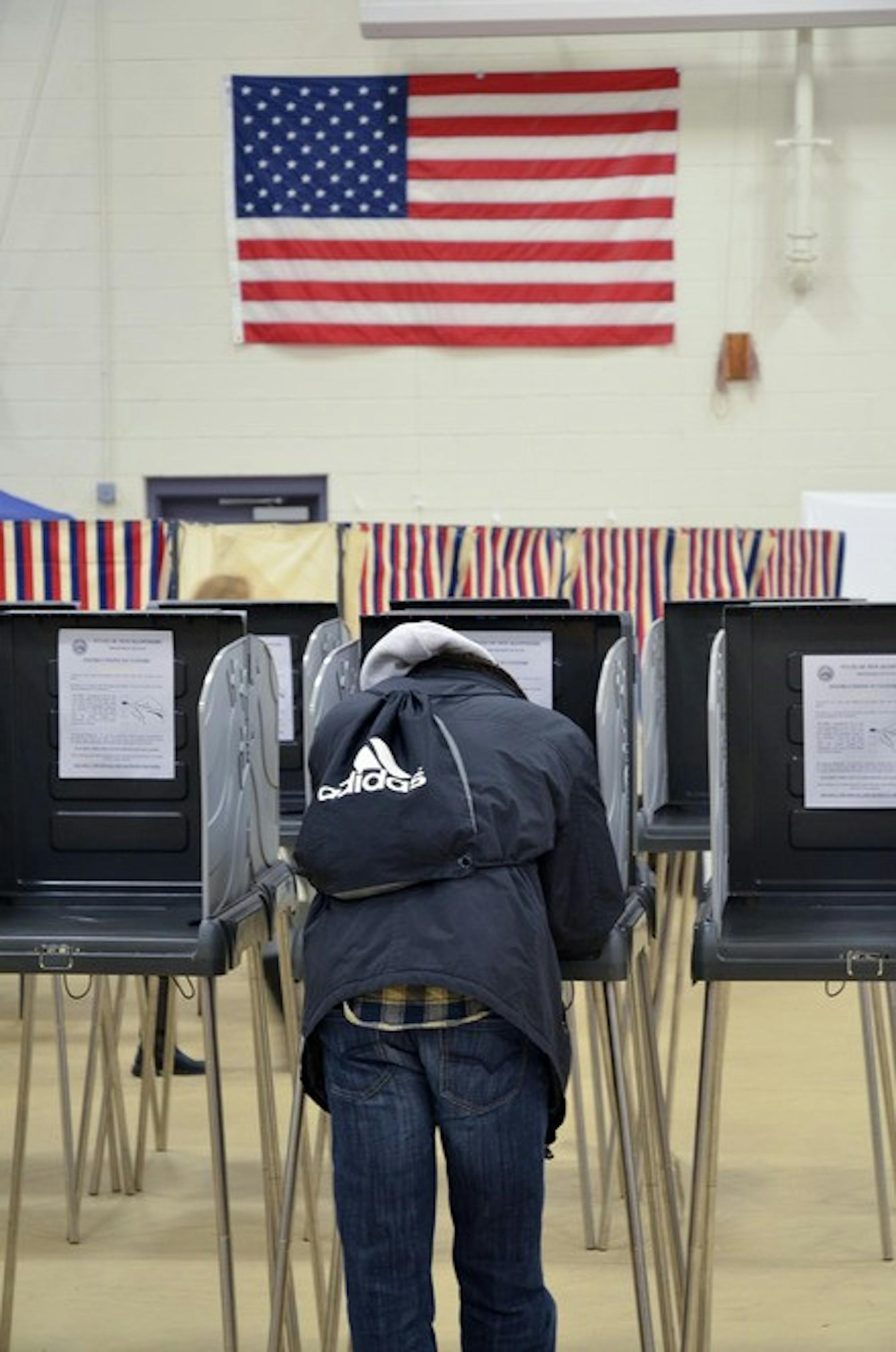Shannon Bettencourt, a media relations representative for the New Hampshire House of Representatives, said that the law will "ensure more information transparency on the registration forms." While the law does not change registration policy, it reinstates language on registration forms that was present prior to 2007, Bettencourt said.
The League of Women Voters and the American Civil Liberties Union have brought a lawsuit on behalf of several New Hampshire college students challenging the language of the law, according to New Hampshire Assistant Attorney General Matt Mavrogeorge.
The New Hampshire Secretary of State's office has declared that college students are eligible to vote in a town or city in New Hampshire if they establish voting domicile in the state. Prior to the passage of SB 318, New Hampshire statute 654:1 known as the domicile statute stated that "domicile for voting purposes shall not be conclusive of the person's residence for any other legal purpose." The passage of SB 318 eliminated that language from the statute.
The lawsuit, brought before the Strafford County Superior Court, challenges SB 318 for attempting to prevent college students from voting by inserting language that blurs the distinction between "domicile" and "residence."
Despite these changes to state law, a prospective voter who cannot provide sufficient evidence of domicile can sign a domicile affidavit or a qualified voter affidavit.
"You don't need any specific form of ID to register to vote because if you don't have sufficient proof of your identity, you can sign an affidavit," Mavrogeorge said.
New voting laws may have a significant impact on youth turnout because young people may not understand how the process works, Director of Development for Rock the Vote Amanda Brown said.
"We just need to focus on the education component so there are no surprises on Nov. 6, and if there are, you guys know what to do about it," Brown said.
Rock the Vote is a national nonpartisan voter registration and education organization specifically geared toward young people. Brown said that the organization will be focusing on informing New Hampshire youth which IDs will be accepted at the polls during the November elections.
Hanover Deputy Town Clerk Betsy McClain said that prospective voters have always been required to show a photo ID and proof of residence to register to vote in Hanover. Three elected Supervisors of the Checklist register voters in nonpartisan voter registration drives in Hanover, and citizens are registered to vote only after the supervisors verify prospective voters' forms, according to McClain.
McClain said that the new voter registration law poses a conflict for students who must sign the statement claiming domicile and agree to abide by the rules and regulations that typically apply only to state residents.
"There is a tension between making it easier for the prospective voter, but then, of course, we need to be sure that we are following the laws and we have the proper paperwork and that we checked everything," McClain said.
Press secretary for the Obama campaign in New Hampshire Harrell Kirstein said that the campaign is attempting to dispel some of the myths about voter registration by holding twice-weekly voter registration drives around the state and by bringing celebrities to campus to encourage students to register.
"Here in New Hampshire state-level Republicans have tried to stop young people from voting because they claim that young people and college students are foolish and just vote their feelings," Kirstein said. "This November, students can prove them wrong."
New Hampshire law does not allow third-party registration drives, so campaigns are not involved in the voter registration process.
College Republicans President J.P. Harrington '14 said that his organization is focusing more on campaigning and campus outreach on behalf of Mitt Romney's campaign. He said that the new laws governing voting in New Hampshire do not disenfranchise voters, but ensure that voters are part of the local community.
"I think it places basic fundamental democratic policy," Harrington said. "You want somebody who is a part of the system to be voting on what impacts the system."
The voter registration law is part of a series of laws passed by the New Hampshire state legislature that change voting procedures and policies. The legislature also passed SB 289 and HB 1354, which established new voter ID laws. The laws stipulate that after Sept. 1, 2013, identification requirements at the polls will be restricted to state or federal government-issued driver's licences, non-driver identification cards issued by the motor vehicles authority of any state, armed services identification cards or a United States passport. Prior to Sept. 1, 2013 and in effect for the upcoming November elections, student identification cards and other valid photo identification issued by federal, state, county or municipal governments are also accepted.
Voter ID laws are expected to take effect on Sept. 1, 2013 to allow the state to phase in the new policies, New Hampshire State Rep. Carol McGuire, R-Merrimack, said.
"It's very easy for out-of-state students to vote in more than one place, which is of course illegal," McGuire said. "You don't just vote randomly wherever you happen to be. You vote where you have the connections."




